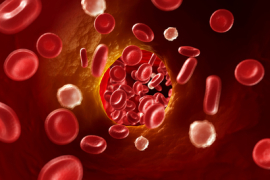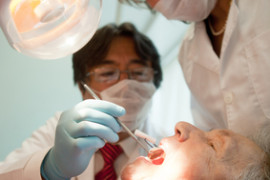Does oral cancer have a bacterial origin? A new study in the Journal of Virology suggest there might be a connection.
The periodontal pathogens Porphyromonas gingivalis and Fusobacterium nucleatum are involved with many of our most destructive inflammatory diseases. This new research, lead by researchers at Case Western Reserve University, shows us that they are also a major risk factor for Kaposi’s sarcoma, a type of oral cancer that is found primarily in HIV patients. Researchers concluded that the byproducts of these bacteria play a key role in the transition of these into a deadly cancer.
P. gingivalis and F. nucleatum are periodontal pathogens that are found in people with varying degrees of periodontal disease—everywhere from what looks like a healthy mouth all the way to severe gum disease. It is the periodontal pathogens that cause the systemic response that connects the mouth to the rest of the body. This study shows that these same bacteria—which are already closely linked with conditions such as atherosclerosis, rheumatoid arthritis, colorectal cancer, and pregnancy complications—and their byproucts play an important role in the progression of the oral cancer Kaposi’s sarcoma in HIV positive patients.
The takeaway is that periodontal disease is a complex medical disease involving periodontal pathogens. It is the presence of those periodontal pathogens that raise risk for and impact inflammatory diseases and cancers, even in patients whose immune systems are not compromised. By addressing microbial burden, one can assume that we can lower risk for this deadly cancer.



